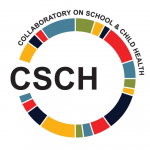Director of the UConn A.J. Pappanikou Center for Excellence in Developmental Disabilities Education, Research, and Service (UConn UCEDD), Mary Beth Bruder has received a $6.5 million grant from the U.S. Department of Education to develop a doctoral leadership program to train 28 future faculty. These trainees will then design and teach courses and programs of study designed to prepare teachers, social workers, and therapists to provide specialized interventions to infants and young children with intellectual and developmental disabilities and their families.
I often worry that our focus on domestic students and their needs is causing an entire, important demographic to feel forgotten and unwanted.
U.S. Secretary of Education Betsy DeVos announced the 2019 recipients of the Terrel H. Bell Award for Outstanding School Leadership. The 10 principals from the 2019 cohort of National Blue Ribbon Schools will be honored during the National Blue Ribbon Schools awards ceremony on Thursday, Nov. 14, 2019 in Washington, D.C.
There is a lot of research on teachers’ use of waiting in the classroom and the positive effects it can have for student engagement and learning. The best news of all? Improving student learning only takes 3 seconds.
It gets harder and harder to treat dyslexia in children with every year that passes after preschool. Problem is, most kids don’t get diagnosed until they’re around 8 years old. Dyslexia particularly hard to detect in English-speakers, and teachers usually only recognize it once a child fails. That’s why researchers from three universities got together to make an app that will help teachers detect dyslexia in kids at an earlier age.
Approximately 70 school, behavioral health, community, and research leaders from across the state gathered at the University of Connecticut campus in Storrs on Wednesday, Oct. 23, 2019, to discuss school and community responses to childhood trauma and how to align work around trauma-informed schools in Connecticut.
On October 23, 2019, CSCH cosponsored and hosted the Symposium on Trauma-Informed School Mental Health 2.0.” Approximately 70 school, behavioral health, community, and research leaders from across the state gathered at the University of Connecticut campus in Storrs to discuss school and community responses to childhood trauma and how to align work around trauma-informed schools in Connecticut.
“Colleges place significant weight on a student’s grade point average, class rank, and standardized test scores in the admissions process,” says Clewison Challenger. “For decades, these measures have informed how K-12 schools design curricula and counsel students on college readiness. Yet grades and SAT results alone are ineffective predictors of students’ college success.”
Hazing and heavy drinking have been taking place at American colleges and universities for decades. Death has been a constant companion. New fraternity members at U.S. colleges and universities have died at an average rate of one per year for the past 50 years. Ten have died in the past three years. At least six hazing deaths since 2017 were alcohol-related.
“As a researcher who has examined masculinity in college fraternities, I conclude that the reason these efforts have not succeeded is because they fail to deal with the fact that drinking alcohol – and other risky behaviors – are deeply embedded in society’s notions about what it means to be a man,” says Adam McCready.



